1. Introduction to Development Boards
The MM32F5270 series microcontroller is an MCU product equipped with Arm China’s “Star” STAR-MC1 processor, with a working frequency of up to 120MHz, 256KB Flash, and 192KB RAM. It features a Floating Point Unit (FPU), Digital Signal Processing (DSP), MindSwitch signal interconnect matrix, Configurable Logic Unit (CLU), and CORDIC for trigonometric function acceleration, along with a rich set of peripheral modules and ample I/O ports. Compared to existing products, the MM32F5270 significantly enhances performance, storage capacity, bus architecture, and peripheral configuration, aiming to cover a broader range of industrial, automotive, and IoT applications.
The Star Development Kit is a high-performance embedded development board based on the STAR-MC1 MM32F5270 controller. This development board possesses rich onboard peripheral resources and various expansion interfaces, allowing easy integration of external modules or the construction of experimental platforms for various embedded IoT innovative designs.
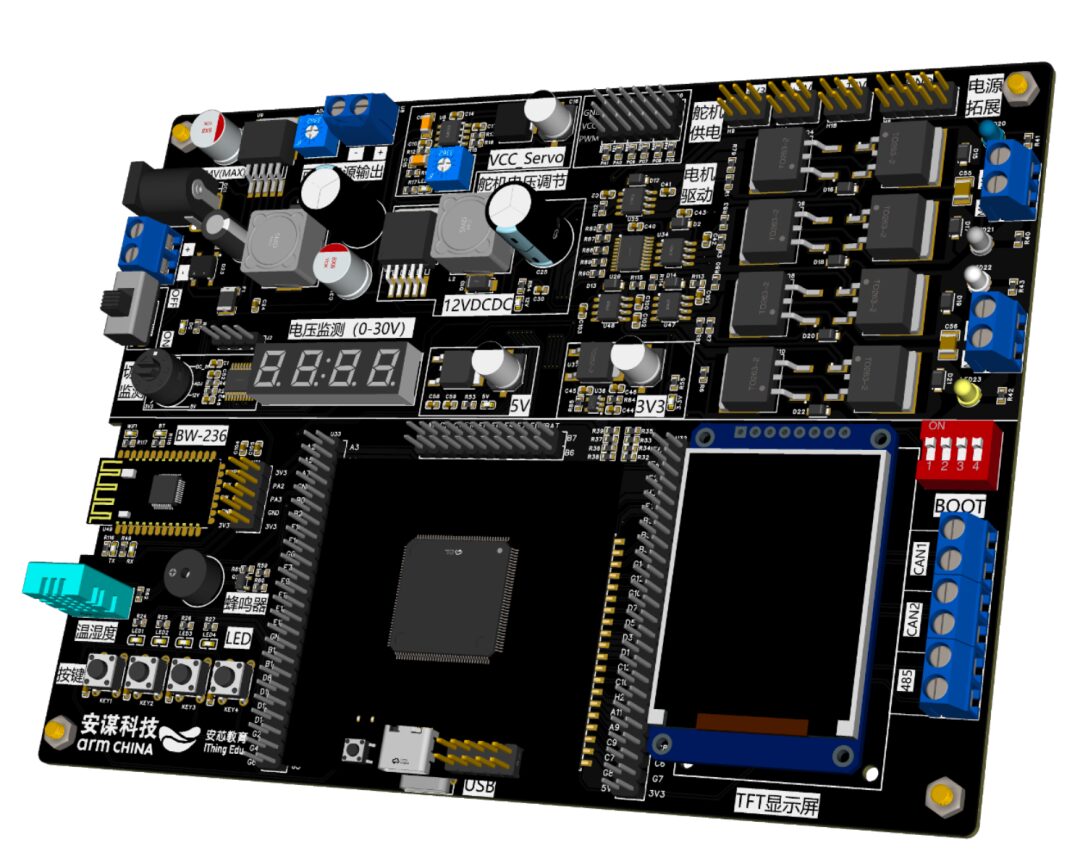
Figure 1: Appearance of the Star Development Kit
(1) Main Configuration
1.1 Control Core
lSupports Mind Motion MM32F5270 series MCU evaluation
lSupports Keil uVision v5.3 integrated development environment
lSupports SWD debugging of the MCU
lUses the MM32F5270 core board
1.2 Power Supply
lThe development board MCU power supply is designed based on a 3.3V voltage
lIncludes a DC power supply interface, wide voltage input, supporting 12V-24V DC voltage input
lBattery power supply interface
lSupports SWD debugging interface power supply
l6 servo interfaces, adjustable servo power supply voltage, and monitoring capabilities
lSupports adjustable power output
lTwo DC motor drivers
l3.3V/5V/12V/GND expansion pin headers
lPower supply section includes self-resetting fuses
1.3 User Interaction:
l4 user buttons
l4 user LEDs
lIncludes a screen interface for connecting a 1.8-inch color LCD
lDHT11 temperature and humidity sensor
lAlarm buzzer
lDigital tube voltage monitoring
1.4 Signal Input and Output
lFull GPIO output
l1 USB-UART interface
l1 USB-C connector, connected to the MCU’s USB
1.5 Communication Part:
lBW236 Bluetooth WiFi dual-module, using serial communication
lWiFi functionality supports TCP, UDP, MQTT, Alibaba Cloud platform
l2 CAN communication interfaces with terminal block connectors
l1 RS-485 communication interface with terminal block connection
(2) Hardware Resources
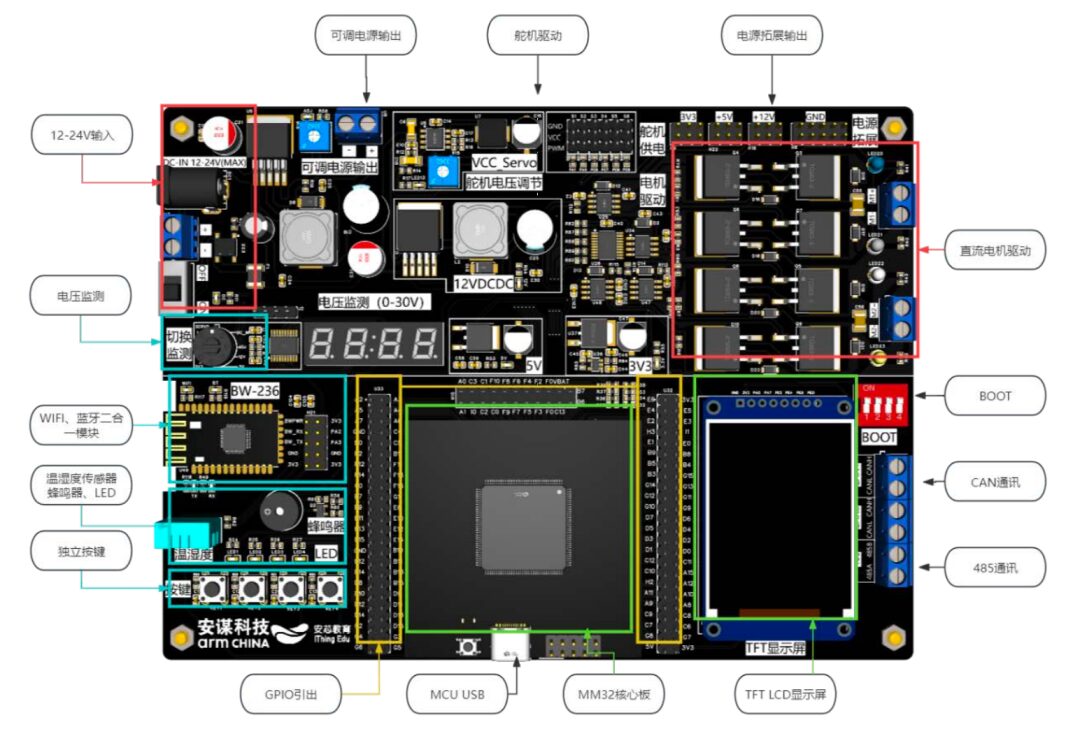
Figure 2: Hardware Resources of the Star Development Kit
For more information about the development board, please download the “Star Development Kit User Manual” from the link: https://puliedu.com/res/doc/xingchen/星辰开发套件用户手册.pdf
2. Introduction to the Simulation Learning Platform
The “Embedded Simulation Experiment Teaching Platform” is an internationally leading embedded teaching platform based on chip instruction sets launched by Anxin Education, applicable to multiple disciplines such as computer science, software engineering, artificial intelligence, automation control, electronic science, communication engineering, and information systems.
The core function of the product is to provide 1:1 functional-level simulation of the embedded hardware experiment platform, offering soft customization of the target environment and full closed-loop code virtual execution capabilities, combined with systematic course construction and 3D scene-level experimental simulation, creating a new online experimental teaching model. The product can serve as an auxiliary/upgrade to traditional university experiments, establishing a 24-hour online virtual laboratory, and through a combination of virtual and real, providing a better experimental experience for students while reducing the teaching pressure on teachers and lowering laboratory operation and maintenance costs.
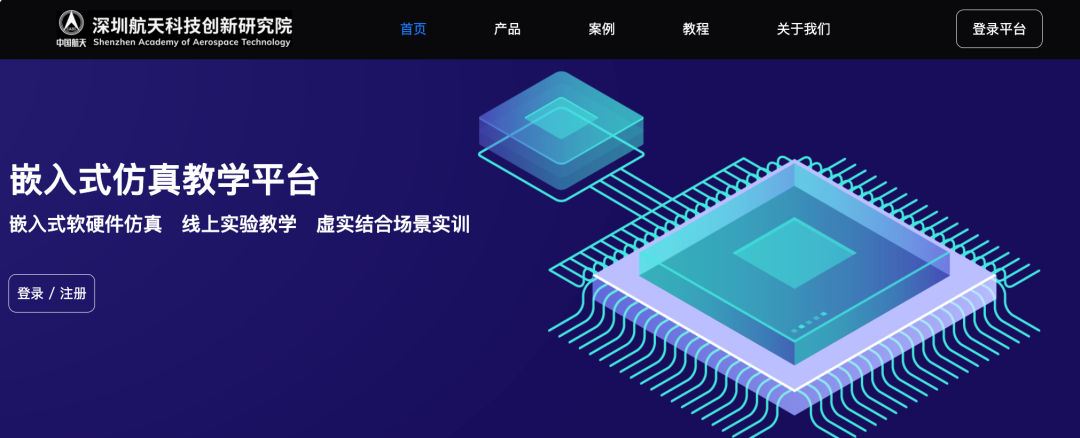
Figure 3: Official Website of the Embedded Simulation Experiment Teaching Platform
(1) Courses for the Development Kit for the Competition
The Embedded Simulation Experiment Teaching Platform provides professional training courses for the “Star Development Kit” for the participating teams (2024 National College Student IoT Design Competition (Arm Technology Track) training course package), covering basic functionality development knowledge such as GPIO running lights, buzzers, button operations, serial debugging, timers, and experimental courses for supporting modules like temperature and humidity controllers, servo drivers, 485 sensors, and H-bridge motors. The content is structured from basic to advanced, meeting the needs of both beginners and experienced developers.
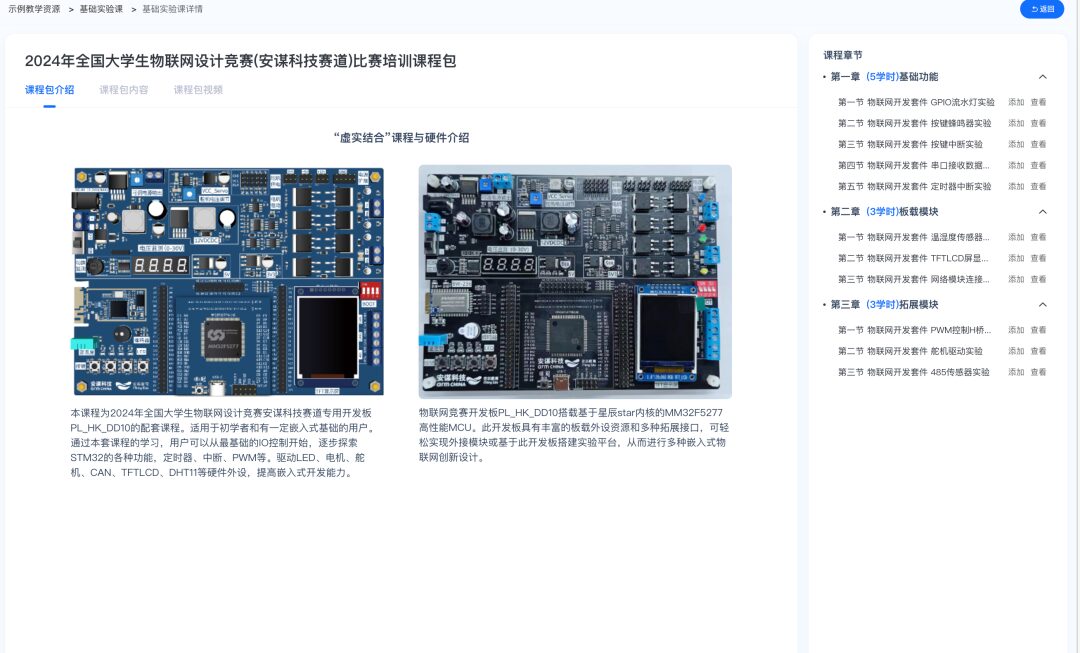
Figure 4: 2024 National College Student IoT Design Competition (Arm Technology Track) Training Course Package
The course simulates 1:1 based on the physical “Star Development Kit”, allowing students to learn and simulate all module usage knowledge of the “Star Development Kit” on the platform, helping participating teams overcome the limitation of insufficient physical development boards for all team members.
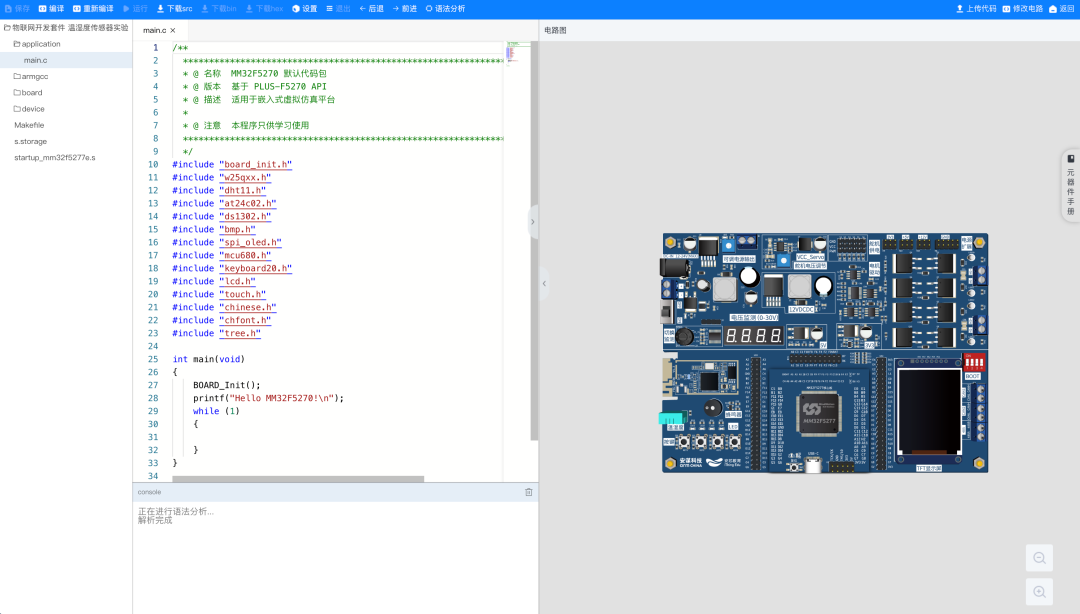
Figure 5: Course Package Code Editing, Debugging, and Simulation Page
(2) Courses for the MM32F5270 Microcontroller
In addition to the “Star Development Kit” supporting courses, the platform also offers an introductory course on MM32F5270 titled “Classic Ten Lessons of MM32F5270” to help participating teams quickly master relevant knowledge of MM32F5270.
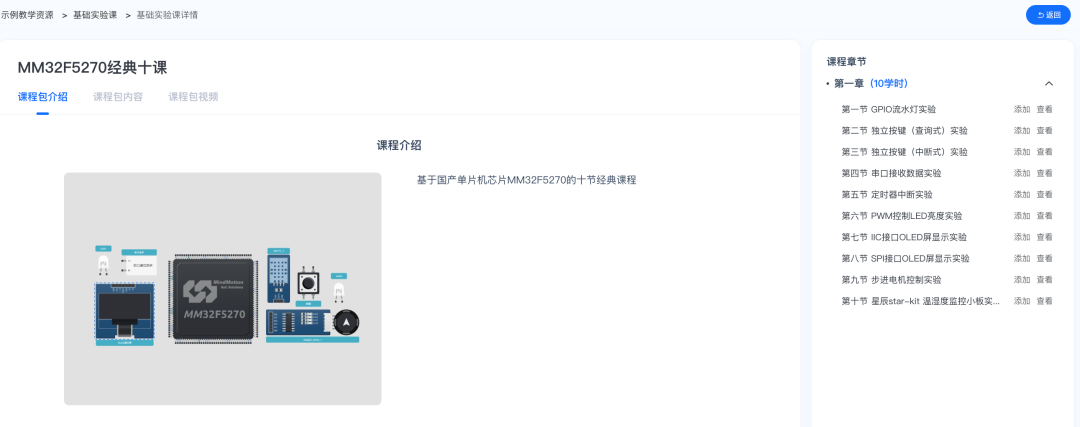
Figure 6: Classic Ten Lessons of MM32F5270 Course Package
(3) Platform Simulation Learning
Furthermore, the platform provides over 80 supporting components, allowing participating teams to build circuits, edit code, debug, and simulate their competition projects from scratch, helping team members familiarize themselves with relevant components and enhance their overall capabilities.
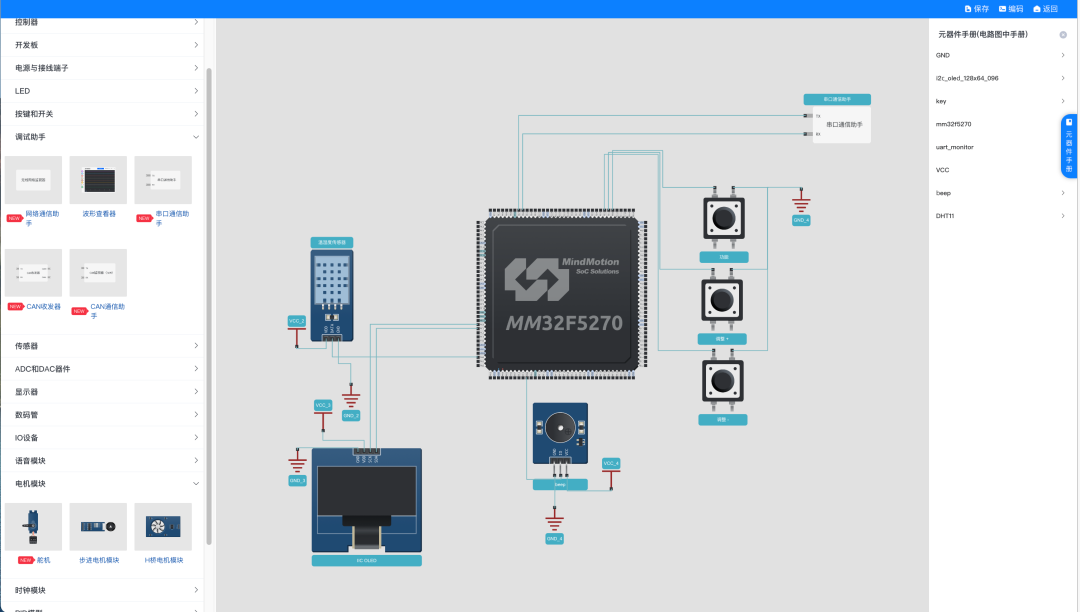
Figure 7: Platform Circuit Building Page
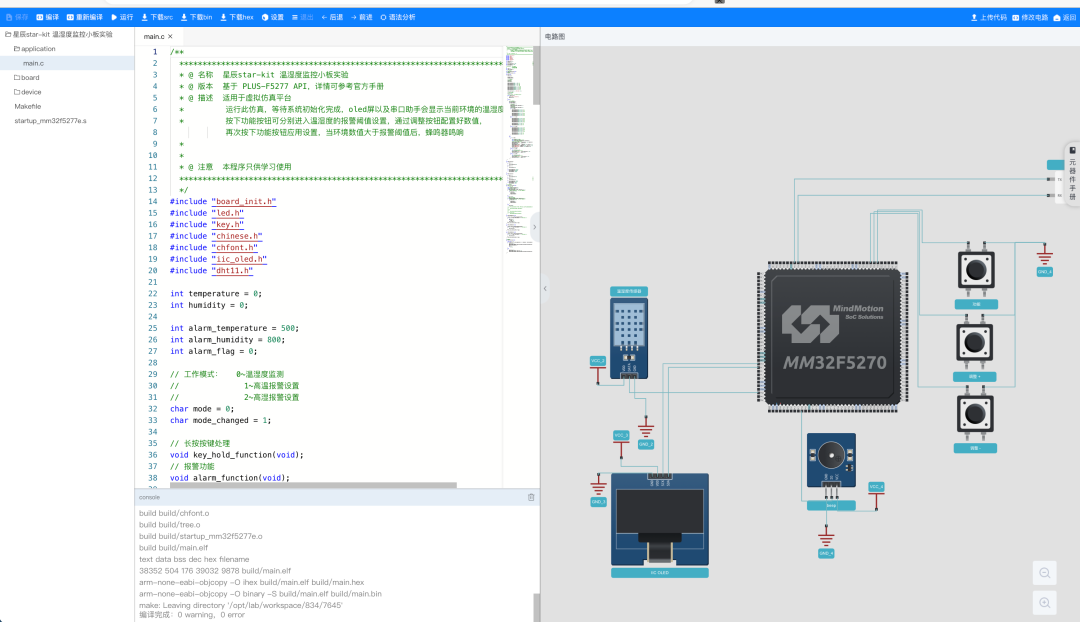
Figure 8: Platform Code Editing, Debugging, and Simulation Page
(4) Application for Use
Each participating team teacher can apply for an authorization for an organization of 35 people. Participating teachers can use the platform for competition capability training, development board knowledge learning, and simulation creation of competition projects. This helps teams master the hardware and software knowledge of the “Star Development Kit”, familiarize themselves with the development process of the “Star Development Kit”, and quickly enhance the team’s collaborative capabilities in the competition.
Registration Method 1:
Advisors can contact the administrator through the competition’s dedicated QQ group (QQ group number: 820224949): Event Support – Teacher Zeng, provide relevant information, and register for use.
Registration Method 2:
Advisors can go directly to the official website (www.puliedu.com), select teacher registration, and contact official staff for registration review after registering.
END
关于安芯教育
安芯教育是聚焦AIoT(人工智能+物联网)的创新教育平台,提供从中小学到高等院校的贯通式AIoT教育解决方案。
安芯教育依托Arm技术,开发了ASC(Arm智能互联)课程及人才培养体系。已广泛应用于高等院校产学研合作及中小学STEM教育,致力于为学校和企业培养适应时代需求的智能互联领域人才。